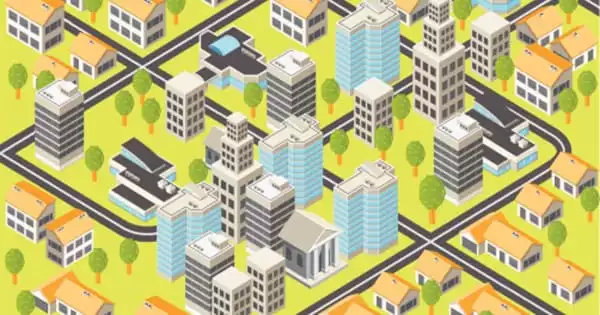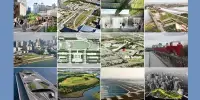Regional planning is concerned with the planning of areas that include both urban and rural areas. It is concerned with the efficient distribution of land-use activities, infrastructure, and settlement growth over a larger area of land than a single city or town. The term regional planning is synonymous with urban planning; however, the distinction remains in the area under consideration. It is an essential component of city planning. It focuses on how different aspects of a city can work together to make it function as efficiently as possible.
Regional planning is similar to urban planning in that it connects land-use practices on a larger scale. It also entails the creation of laws that will guide the efficient planning and management of such regions. Regional planning can be comprehensive by covering a wide range of topics, but it is more often focused on a single topic that necessitates regional consideration.
Farmland, cities, industrial space, transportation hubs and infrastructure, military bases, and wilderness all require different land uses. Regional planning is the coordination of land use and transportation planning across a region in urban planning. Metropolitan planning organizations (MPOs) typically develop regional plans, though some states have begun to establish statewide entities to coordinate government agencies and local governments.
Regional planning is the science of efficiently locating infrastructure and zoning for a region’s long-term growth. It can range from a single city or urban area to several cities within a region. Regional planning supporters, such as new urbanist Peter Calthorpe, support the approach because it can address regional environmental, social, and economic issues that may necessitate a regional focus. Because the area covered by this “region” is vast, it is possible that it contains both undeveloped and inhabited areas. As a result, towns, villages, uninhabited areas, forests, wastelands, rivers, and other natural features are all included in regional planning.
Regional planning is a method of dividing things up in a logical manner. For example, if you live in a large city, you may want to divide it into districts such as downtown, midtown, and uptown. In planning terms, a ‘region’ can be administrative or at least partially functional, and it will most likely include a network of settlements and character areas. A regional plan is created to govern and regulate a region’s growth. It is especially important when the growth is concentrated around a major city.
In urban planning, regional planning refers to how a city’s growth is planned at the regional level. Regional and national plans in most European countries are ‘spatial,’ directing certain levels of development to specific cities and towns in order to support and manage the region based on specific needs, such as supporting or opposing polycentrism. In such cases, the city or major urban area serves as the focal point or starting point for a regional plan.
















